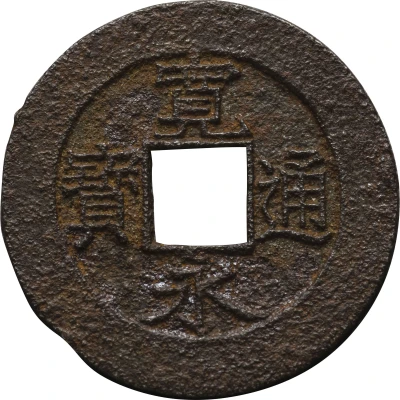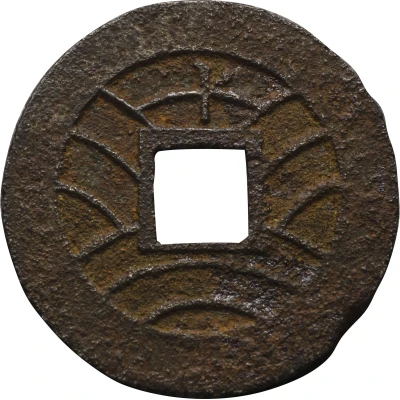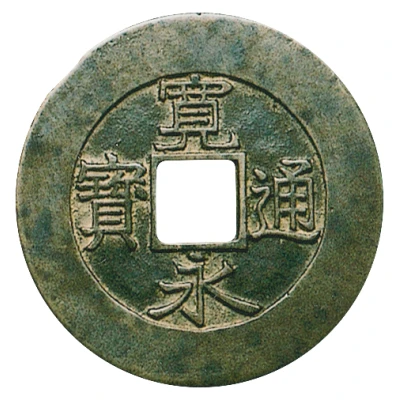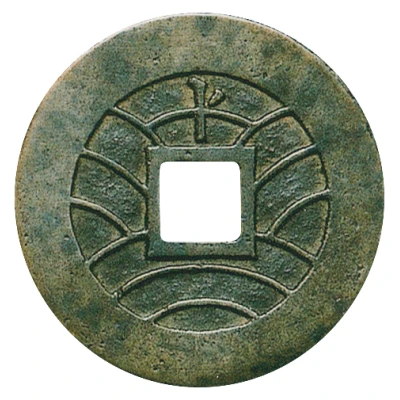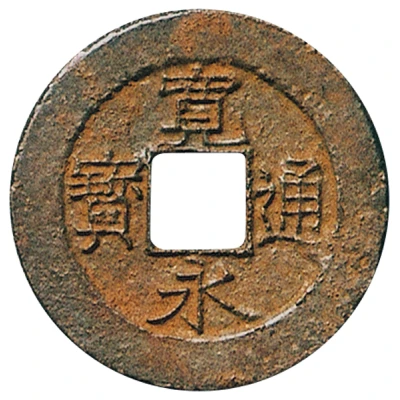
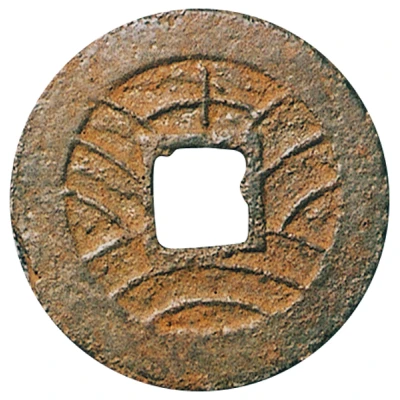

© Ginza Coins
4 Mon "Kan'eitsūhō" Reverse ト ND
1865 year| Iron | - | - |
| Issuer | Japan |
|---|---|
| Type | Standard circulation coin |
| Year | 1865 |
| Value | 4 Mon |
| Currency | Mon (683-1953) |
| Composition | Iron |
| Shape | Round with a square hole |
| Technique | Cast |
| Orientation | Medal alignment ↑↑ |
| Demonetized | Yes |
| Updated | 2024-10-05 |
| Numista | N#291353 |
|---|---|
| Rarity index | 93% |
Reverse
11 waves with a character above hole; ト represent Mito Domain Resident in Edo (now Sumida Park, Tōkyō)
Script: Katakana
Lettering: ト
Translation: To
Interesting fact
One interesting fact about the Standard circulation coin 4 Mon "Kan'eitsūhō" (Reverse ト) ND (1865) from Japan made of Iron is that it was part of a series of coins introduced during the Meiji Restoration, a time of significant social and political change in Japan. The coin was designed to replace the traditional Japanese monetary system, which was based on silver and gold, with a new system based on copper, silver, and gold. This coin, in particular, was minted in 1865, just a few years after the Meiji Restoration began, and it features an image of a dragon on one side and the Japanese character for "copper" on the other. It's a unique piece of history that reflects the country's transition towards modernization.
